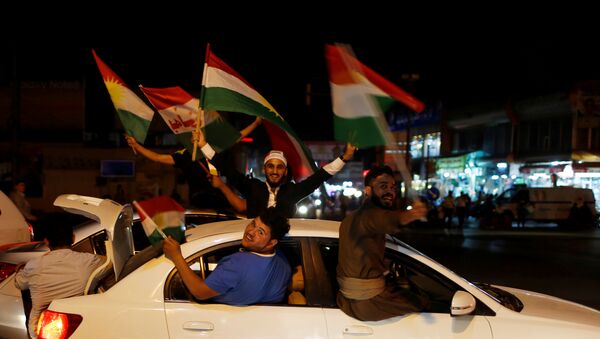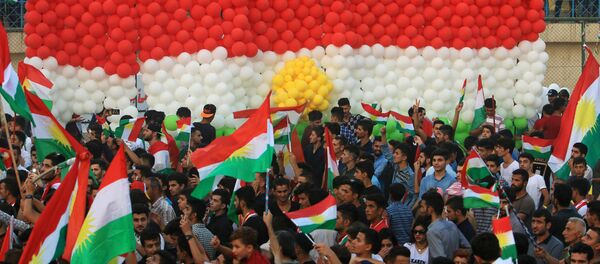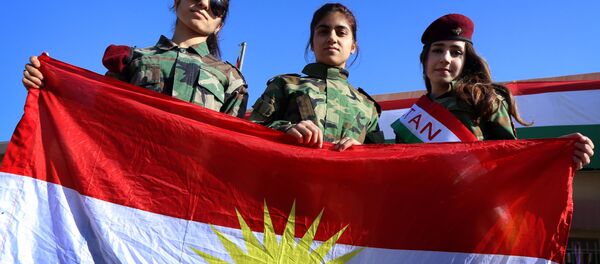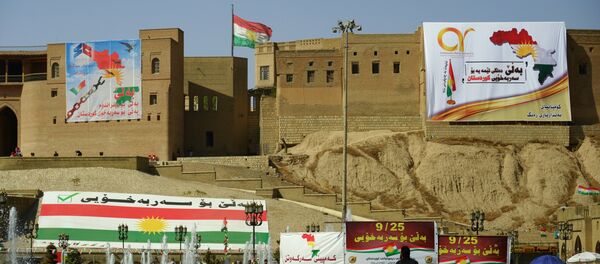Member of the Politburo of the Kurdistan Democratic Party (KDP) of the Kurdish autonomy in northern Iraq, Ali Avni told Sputnik Turkiye that the Iraqi Kurds are celebrating the results of the referendum with great inspiration. Their longstanding dream has finally come true.
On Tuesday, the referendum commission announced that it counted 3.4 million ballots which showed that 91.83 percent of voters supported independence from Baghdad. The final results are expected on Thursday.
"We had to live through slaughter in Halabja and Anfal for our strife for an independent Kurdish state. We had to shed blood for our independence on the territories of four countries. Iraqi Prime Minister Al-Abadi, Daesh and other forces have been threatening us, trying to force us to abandon our dream. But we do not surrender to any threats," he told Sputnik Turkiye.
The Kurdish politician then commented on the results of the Monday vote.
"We had expected such an outcome. We have been able to fulfil our task: Kurdish people have made the right decision. The turnout was very high and many have voted for independence," he said.
"The turnout and the level of support for independence were considerably higher in Dohuk, Erbil and other regions where the positions of KDP are strong. In Sulaymaniyah, for example, where Goran is stronger, the turnout was low and more than half of the residents have voted against," he said.
The politician acknowledged that there have been serious discrepancies between Goran and a number of other Iraqi Kurdish political parties over the voting. Some politicians were afraid that all of the international community would turn against Iraqi Kurdistan over the referendum. However it did take place and nothing prevented the Kurdish authorities from accomplishing their duties, he stated.
Iraqi Kurds 'Pose No Threat' to Anyone
The politician specifically stressed that Iraqi Kurds pose no threat, not to their neighbors nor to anyone else. They do their best to facilitate peace and stability around the world.
Ali Avni said that the authorities of Iraqi Kurdistan are now launching a negotiation process with Iraq. They have no intention to separate from Iraqi territory by force. Their choice is a dialogue and peaceful talks with the Iraqi leadership.
However, that agreement failed to be implemented and by 1974 the Iraqi government began a new offensive against the Kurds, the Second Iraqi-Kurdish War (1974-1975), which eventually led to the quick collapse of the Kurds, who were lacking advanced and heavy weaponry.
The war ended with the exile of the Iraqi KDP party and between 7,000–20,000 deaths from both sides combined.





